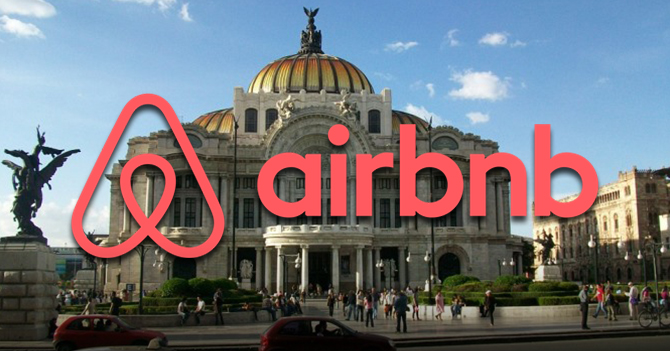
An initiative in Mexico seeks to ban Airbnb
Congresswoman Leticia Estrada Hernandez proposed modifications to Mexico City’s Condominium Law so no private property can be used for commercial, industrial,…
On July 15, an amendment to the condominium law was presented in Mexico City, establishing that private property cannot be used for other purposes beyond those established in the deed.
“It is prohibited to carry out industrial, commercial or service activities in privately owned units for residential use, and under no circumstances may they be used for temporary accommodation such as that offered by the Air B & B.” reads the proposed reform.
Reactions to the modification were mixed among citizens.
On one hand, people are against the reform because of the potential negative effect in tourism and the income it generates.
On the other, people are in favor of the measure because of the gentrification caused by the "Bed and Breakfast" spots, increasing leasing prices for locals.
According to Forbes, just in Mexico City, between houses and apartments, Airbnb accounts for more than 17,000 rooms available, which records almost 5% of the hotel occupancies in the city.
However, although short-term rentals generate lots of economic benefits, they also have negative effects on local communities and the long-term housing supply.
Firstly, holiday-style-leasings bring temporary guests who don't respect neighborhood standards. These outsiders are looking to have a good weekend regardless of the comfort of the other neighbors.
Secondly, platforms such as Airbnb cause long-term home rentals to become short-term rentals as they seek the benefits of tourism rather than local leasing.
RELATED CONTENT
As a result, low housing supply and the high demand for long-term leasing are raising the prices, making it almost impossible for local residents to find affordable accommodations.
The budget of the tourists exceeds the salary of the average employee, increasing the price of the properties.
Middle-class neighborhoods become affluent by catering to the demands of high-income users, such as foreign visitors, displacing regional inhabitants.
Gentrification forces houses and apartments to shift from being a shelter to being an investment vehicle, stretching an already-strained housing supply.
The unexpected phenomenon causes available apartments to be offered only on a short-term basis, being habited just over the weekends, while citizens look for long-term apartments for daily use, which are becoming less and more expensive.
The misconception regarding Airbnb's new policy in Mexico City is that congresswoman, Leticia Estrada Hernández is prohibiting platform users from receiving an income out of their properties.
However, more than a prohibition, the reform is a regulation that attempts to stop business from increasing city neighborhoods’ prices so locals inhabitants can still pay affordable rents.











LEAVE A COMMENT:
Join the discussion! Leave a comment.